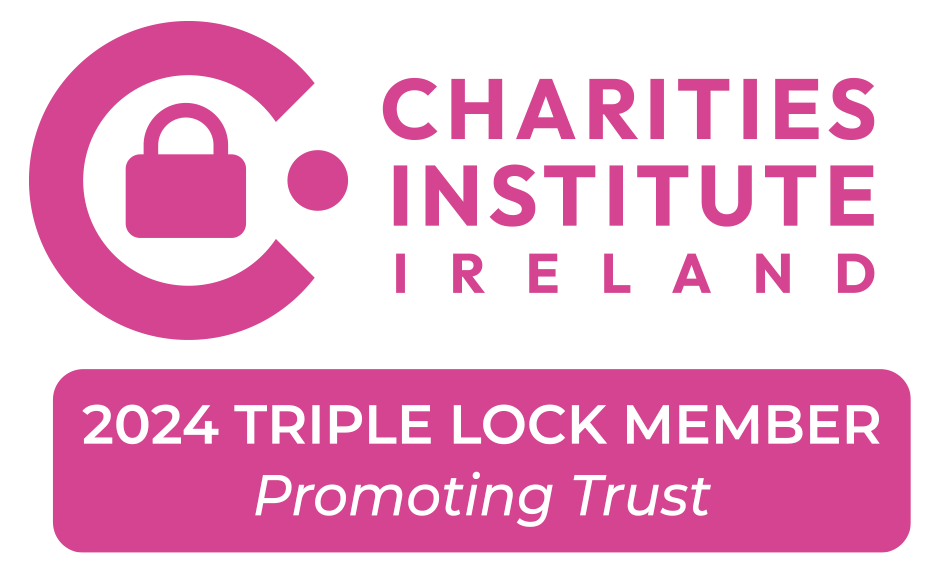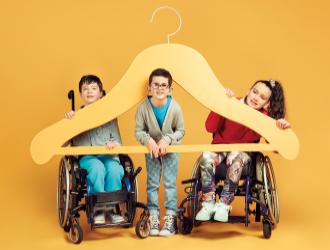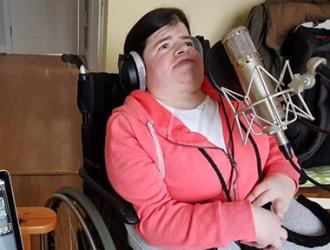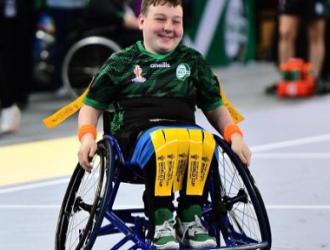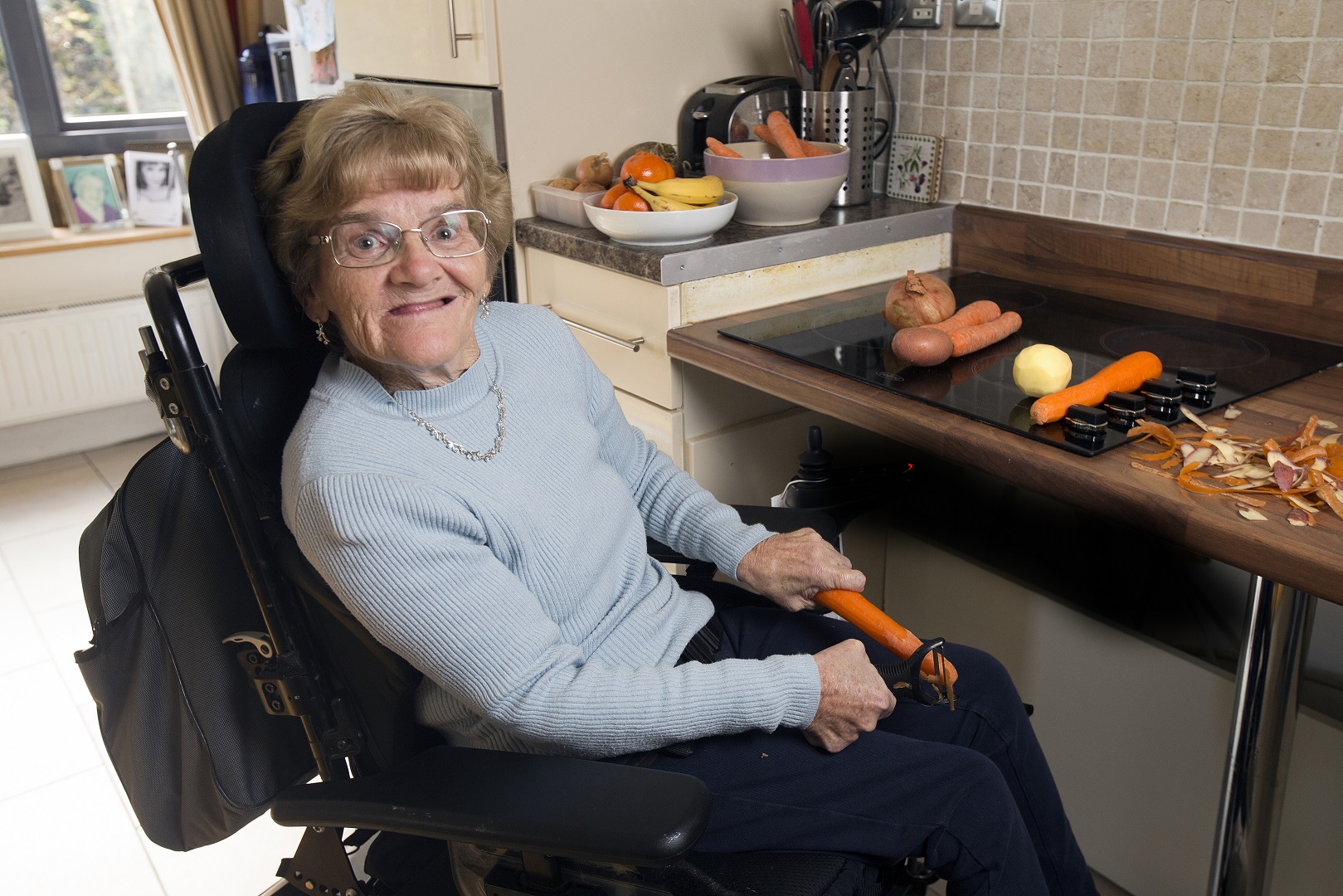
Mossie Forde tells how life has changed for better since moving to independent-living complex. Enable Ireland supports state-of-the-art residence for people with disabilities in Co Meath.
Article by Ellen Coyne and published in the Irish Independent 2 November 2022
Mossie Forde was coming up on her 60th birthday when she made herself a cup of tea for the first time ever.
Ms Forde, from Trim, Co Meath, and now 73, spent a lot of her life living in institutions.
When she was a child, she was diagnosed with cerebral palsy. Her parents had noticed she seemed to be struggling to crawl and develop as their other babies had.
From the age of four, she lived away from her family a lot – at first in residential schools for children with disabilities, then in respite services or hospitals.
In 1999, when Ms Forde was 50 years old, she was moved into a nursing home in Kells.
Like so many other disabled people in Ireland before and since, a nursing home was the only option for Ms Forde due to the dearth of alternative accessible accommodation – institutional or otherwise.
She lived in that nursing home for almost a decade.
While she has good, happy memories from her time there, her independence was stymied in the home.
For example, when she first arrived she used to like helping staff to do the washing up in the evenings. However, the creeping influence of health and safety rules and regulations put a stop to that.
It was a fateful day in 2006 when a social worker asked Ms Forde if she had ever considered independent living.
“Are you gone mad, or what?” Ms Forde remembers telling the social worker. “I can’t walk, I can’t cook, I can’t manage money…”
Speaking now, she feels with hindsight that she had become institutionalised into that way of thinking while living in the home. Before that point, she had never lived independently – because she had never been given the opportunity to.
The social worker had planted a seed in her mind, and eventually she agreed to try independent living.
In 2008, Ms Forde was moved to the brand-new Bailis apartment blocks in Johnstown, near Navan, Co Meath.
There are about 90 apartments in the block, and it has a supermarket, pharmacy, post office and bus stop beside it. Within the apartment block is one of the most discreet and unique independent living facilities for disabled people in the country. When it was being built, five accessible apartments were included in the plans for Bailis. These five apartments are just like any other home in the apartment block, except the doors and hallways are wide enough for a motorised wheelchair. Some might have a hoist over the bed, if it’s needed.
And they all have a doorbell supported by a camera, so the resident there can see who is outside both from their living room and their bedroom.
The apartments are a collaboration between Enable Ireland, the HSE and Cheshire.
Cheshire is the landlord, and each resident is responsible for their own rent and the costs of running the apartment. When Ms Forde moved in, it was the first time in her life that she was responsible for paying her own rent and running her own home.
In the nursing home, her medication was dispensed to her. Now, she goes to the local pharmacy to collect it herself.
She is buying her own food and cooking her own dinner, which also meant she can now choose her own meals.
On moving to Bailis, she was managing her own money for the first time. Eventually, she learned how to take the bus and soon she was taking herself out for Sunday lunch.
"This has been the making of me"
And then there’s the tea. Arriving at Ms Forde’s sun-lit apartment on a Tuesday afternoon, she has the cups out and coffee and tea ready.
There are no units on the lower level of the built-in kitchen so Ms Forde can use it easily in her chair. The kettle is on a simple swing contraption that helps Ms Forde to pour the hot water, which she did for the first time for herself when she was almost 60 years old.
From that “terrifying” journey from the nursing home that first day, to a home that is absolutely indisputably her own, independent living has completely changed Mossie Forde’s life. “This has been the making of me,” she said.
At the moment, there are an estimated 1,200 people under the age of 65 living in nursing homes in Ireland.
The main reason is that disabled people have been desperately underserved by successive governments who have failed to provide enough accessible, independent accommodation options.
"Everyone should have the right to live independently, in a community."
Often, parents of adults with disabilities take on the role of full-time carer – usually to avoid their child being moved into an institution. But as the parent ages, the sheer physicality of caring can become too much. And unfortunately, parents can also die. In these cases, disabled adults in their 30s, 40s and 50s can find themselves living in a nursing home full-time.
The ethos of the Enable Ireland staff who help to support people living in Bailis is clear: everyone should have the right to live independently, in a community.
Mossie Forde’s home is the antithesis of an institution, which is no accident. All over the walls are pictures and personal items, including lots of photos from her recent birthdays.
The staff who help support residents such as Ms Forde prioritise the independence and the autonomy of the people that they support.
A sixth apartment within the Bailis block is owned by Enable Ireland, which it subtly uses to accommodate carers 24 hours a day.
While people like Ms Forde will have a certain number of care hours funded by the HSE, they can also call on the 24-hour support staff at any time if they need them.
The most important part of the accommodation is that it is discreet. When the apartments were being built, there was a deliberate decision to spread the accessible homes throughout the mainstream apartment block. Nobody wanted one identifiable corridor or block that would become known as “the disabled accommodation”.
The point of these apartments is for disabled people within them to live ordinary, independent lives.
The worst nightmare of the Enable Ireland staff who work in Bailis is that it would become institutionalised, that the Health Information Quality Authority (Hiqa) might swoop in and start putting wall-mounted clinical hand sanitiser and white hospital-style bins into what staff are clear are people’s homes.
At the moment, staff are training up some of the residents so that they’ll be able to sit on the interview panels for future hires.
"Every town in Ireland should have this"
In the 14 years Bailis has existed, it has worked almost flawlessly. And Marie Vaughan, a service manager with Enable Ireland, has been trying valiantly to get the model adopted elsewhere. “Every town in Ireland should have this,” she said.
Ms Forde explained that there is “no comparison” between her life in the nursing home, and her life here.
In fact, she took to living independently so well at the start she almost frightened herself. “I thought, ‘God, am I getting too independent?’” she said, explaining that she was concerned that if she was seen to be coping too well that she would lose her place in Bailis.
“You can never be too independent, Mossie,” Ms Vaughan reassured her.

